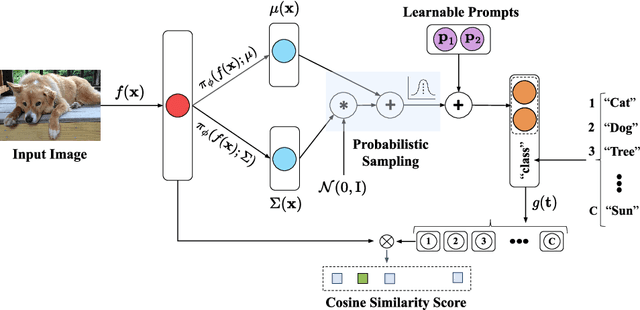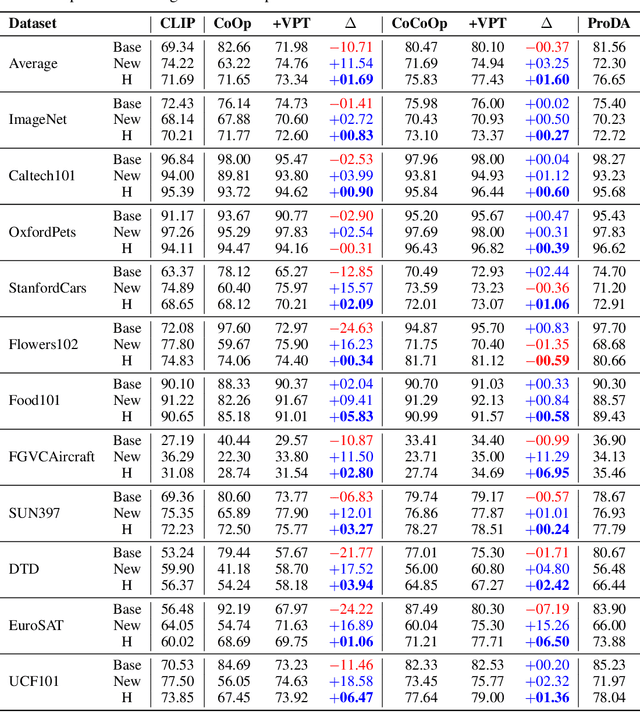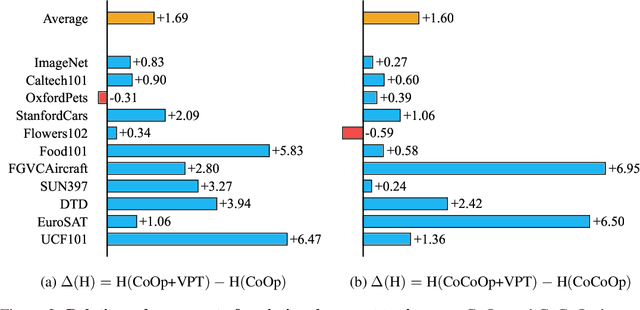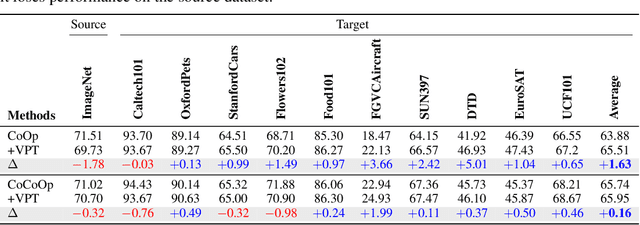Variational prompt tuning improves generalization of vision-language models
Paper and Code
Oct 05, 2022



Prompt tuning provides an efficient mechanism to adapt large vision-language models to downstream tasks by treating part of the input language prompts as learnable parameters while freezing the rest of the model. Existing works for prompt tuning are however prone to damaging the generalization capabilities of the foundation models, because the learned prompts lack the capacity of covering certain concepts within the language model. To avoid such limitation, we propose a probabilistic modeling of the underlying distribution of prompts, allowing prompts within the support of an associated concept to be derived through stochastic sampling. This results in a more complete and richer transfer of the information captured by the language model, providing better generalization capabilities for downstream tasks. The resulting algorithm relies on a simple yet powerful variational framework that can be directly integrated with other developments. We show our approach is seamlessly integrated into both standard and conditional prompt learning frameworks, improving the performance on both cases considerably, especially with regards to preserving the generalization capability of the original model. Our method provides the current state-of-the-art for prompt learning, surpassing CoCoOp by 1.6% average Top-1 accuracy on the standard benchmark. Remarkably, it even surpasses the original CLIP model in terms of generalization to new classes. Implementation code will be released.
 Add to Chrome
Add to Chrome Add to Firefox
Add to Firefox Add to Edge
Add to Edge